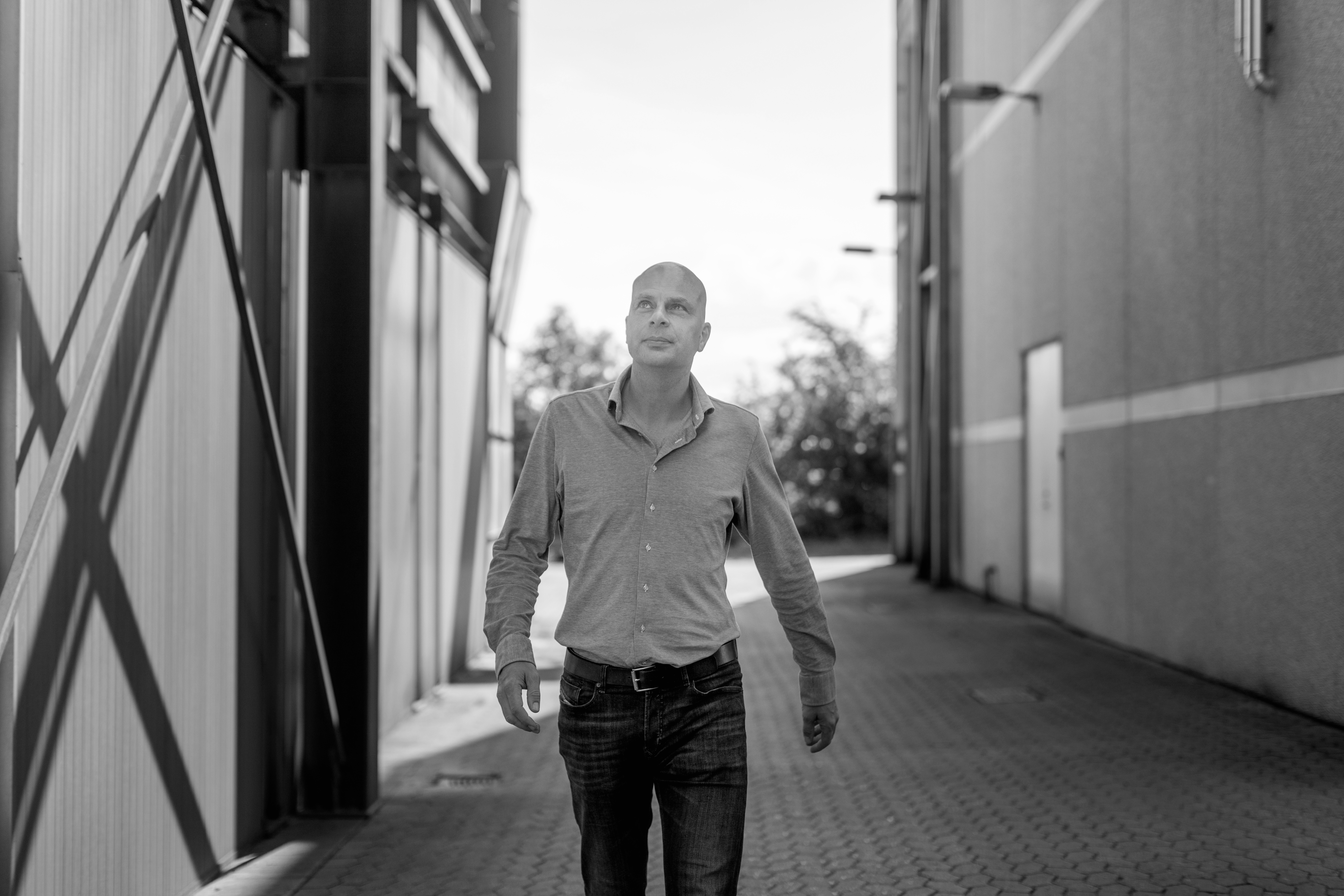CEO Erik Visser in Milling and Grain interview
Erik Visser has been involved in the animal feed industry for most of his career, usually in a high- ranking position, such as the company CEO. The companies he has worked for are among the leaders in the feed industry and include such prestigious names as Nutriad/Adisseo and Provimi.
In mid-2019, he took a position as CEO of Hamlet Protein, a company headquartered in Denmark that specialises in soy-based specialty proteins used in young animal feed. Erik Visser’s skills as a CEO are known throughout the industry, where he is recognised as a role model and leader who demonstrates his passion for building solid teams.
Has COVID-19 changed the way Hamlet Protein operates around the globe?
Travel restrictions in our core markets forced us to find new ways to communicate with our clients, suppliers and colleagues. Intensive use of web-based platforms (WebEx; Teams; Skype etc) instead of face-to-face meetings have become the norm. We have organised several webinars, both for customer specific topics and broader groups.
Beyond our focus on animal nutrition and health, we have invited speakers to address topics of organizational change and personal leadership with the aim to inspire and motivate our stakeholders in these challenging times.
We operate in many countries, and thus have to deal with different local policies. In Denmark, restrictions are being reduced and staff can come to the office again, other countries’ lockdown regulations are still in place. At the start of the outbreak we have seen stock taking in several geographies, but since May order patterns are back to normal.
In May we have also seen a normalisation of freight availability and costs again. In the first months of the year reduced container availability, due to slow down of global economy, led to delays and cost increases in ocean freight. In land transport border controls have been causing some delays, as drivers need to get tested before being allowed entrance into certain countries.
COVID-19 has seen lower energy costs, which is a positive for Hamlet Protein. Production is also running normally; there
have been no COVID-19 cases amongst Hamlet Protein staff. We have people working from home as much as possible but see a desire to come back to the office and interact with teammates. The development of new projects with customers takes more time than before, but we still see new customer wins happening.
Last month Hamlet Protein made several monetary donations to food banks in various geographies, to support communities impacted by economic slowdown. We financed this from our reduced travel and entertainment (T&E) costs and feel fortunate that we can contribute to our society in this way.
In general terms our industry is resilient; Hamlet Protein focuses on young animals. Producers will first reduce diet costs of mature animals, before touching the young animal diet. If overall animal numbers go down, this will, of course, impact our outlook as well. We closely monitor the impact of COVID-19 on our markets and, although there is a certain level of uncertainty on future developments, we are maintaining our 2020 outlook.
How are Hamlet Protein’s markets and economies responding to COVID-19?
In North Central America (NCA), economies have slowed down and unemployment rates are at historic highs.
Closures of processing plants and slowdowns of processing in others are impacting swine and poultry farmers, leading to euthanisation of pigs and chicken. This impact is mainly seen in the US so far.
It is estimated that US pork processing is running at about 80 percent of normal capacity. That means the next 9-to-12 months will be challenging for swine and poultry producers; increasing financial pressure on producers; reduction of
pig numbers; and a further consolidation of pork producers is expected. The poultry industry will be impacted as well and slow down in the next several months, but recovery is expected to be quicker overall than the pork industry.
In China the main impact of COVID-19 was seen in Q1-2020, as first outbreak started late December 2019. Currently restrictions are being lifted; travel within states is being allowed and producers are restocking pig herds. In therest of Asia-Pacific, conditions vary strongly from country to country, as COVID-19 only started impacting economies outside China around March. Added to that we are still dealing with African Swine Fever (ASF), which has impacted swine numbers across the region, but at the same time pushed poultry volume upwards in several countries.
We are closely monitoring meat processing capacity in northern Europa. Some slow down has happened towards the end of May, measurements taken on local levels will determine the impact it will have in coming months. With the European holiday season coming up, the reduced demand in food services will slow down demand for all types of animal protein.
What impact has Hamlet Protein seen in terms of products, supply and demand?
In May our supply/demand was steady for both Northern Central America and Asia-Pacific, resulting in sales levels above last year. In EMEA in May our supply/demand was steady as well, with sales performance in line with last year.
Has Hamlet Protein’s supply changed following the COVID-19 restrictions?
We run 24-hour production in our Findlay, Ohio plant in North Central America. We have not had any COVID-19 cases amongst staff and continue to operate at normal levels.
Supply of raw materials, most of them sourced locally, has not seen any interruptions.
We do not have production in Asia, we supply from either our Findlay, US plant or from Horsens, Denmark. We are catching up in stock building, as we had delays in Q1-2020 due to lack of container availability for ocean freight. Stock levels will return to normal in June again.
We run 24-hour production in our Horsens, Denmark plant. We have not had any COVID-19 cases amongst staff and continue to operate at normal levels in EMEA.
Has Hamlet Protein experienced any issues with transport?
Transportation availability within North Central America has been tight and was already tight pre-COVID 19. As we are working with long term partners, we have been able to ship at normal levels and supply our customers in time.
In May the Asia-Pacific supply chain gradually returned to normality, and we expect to have normal safety stock levels back in place in June. Earlier disruptions led to increased supply chain costs.
Border crossings take more time in EMEA due to enhanced checks. Land transport still sees good availability; container shipments are less predictable in timing and costs, although are gradually coming back to normality.
What is Hamlet Protein’s outlook for the coming months ?
We do not foresee any issues in supplying our customers within the US. We expect pressure on the demand side, due to reduction of pig numbers as well as financial pressure on pig and poultry producers.
We do not foresee any complication on supplying our customers in the Asia- Pacific region. On the demand side we see China picking up again whilst other Asian countries are still under some pressure. ASF is still more dominant in terms of market impact for swine than COVID-19.
Meat consumption in Southern Europe in summer months depends on tourism. As travel and tourism is restricted, this will impact the consumption level of food service (restaurants). This will be mostly seen in Spain, Italy and Greece.
Thank You to Milling and Grain for the interview.


